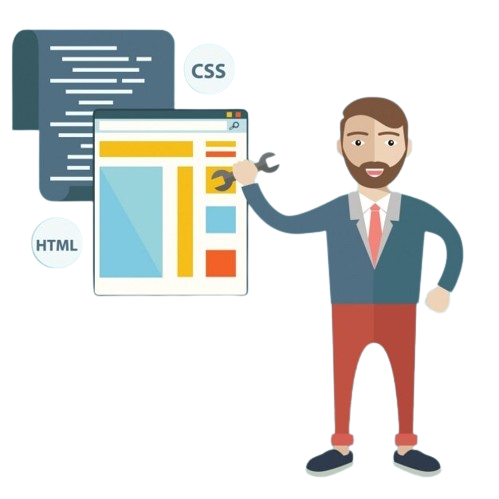- +91 8893111555
- info@novaitpark.com

CodeIgniter is a PHP framework renowned for its simplicity and efficiency in building dynamic web applications. With its lightweight footprint and straightforward configuration, CodeIgniter enables developers to swiftly develop projects of varying complexity. Following the Model-View-Controller (MVC) architectural pattern, it offers a structured approach to organizing code while providing a rich set of libraries for common tasks such as database interaction, form validation, and session management. Additionally, CodeIgniter prioritizes security, offering robust features to mitigate common web vulnerabilities. Its clear documentation and active community support make it a popular choice among developers seeking a balance between ease of use and powerful functionality in their PHP-based projects

Flutter is a versatile and open-source framework developed by Google for creating natively compiled applications across multiple platforms, including iOS, Android, web, and desktop, using a single codebase. It stands out for its expressive and flexible UI components, known as widgets, that enable developers to craft visually stunning and highly customized user interfaces. Flutter's hot-reload feature accelerates development, allowing developers to instantly see changes in their code, enhancing productivity. Its strong community support, rich libraries, and extensive documentation make it an ideal choice for cross-platform app development, enabling efficient, consistent, and visually appealing applications across diverse devices and operating systems.

Python technology is a versatile and powerful programming language renowned for its simplicity and effectiveness in a wide range of applications. With its elegant syntax and an extensive ecosystem of libraries, Python is a top choice for web development, data science, artificial intelligence, and more. Its user-friendly nature makes it ideal for both beginners and experienced developers, while its cross-platform compatibility ensures broad utility. Python's strengths lie in its readability, maintainability, and the ease with which it handles complex tasks, making it an invaluable tool for innovators and problem solvers in various fields, driving advancements and solutions across the digital landscape.

WordPress is a highly versatile and widely acclaimed open-source content management system (CMS) that serves as the backbone for millions of websites globally. Known for its user-friendly interface, WordPress simplifies website creation and management. It boasts an extensive library of themes and plugins, facilitating design customization and functionality enhancement. The introduction of the Gutenberg block editor revolutionized content creation, making it more intuitive and efficient. Its SEO-friendly features enhance online visibility, and WooCommerce, a popular plugin, powers countless e-commerce websites. WordPress's robust community support, regular updates, and diverse capabilities make it an excellent choice for bloggers, businesses, and developers alike, ensuring its continued prominence in the web development landscape.

HTML (Hypertext Markup Language) is the standard markup language used to create web pages. It provides the structure and content of a webpage by using a system of tags and attributes to define various elements such as headings, paragraphs, links, images, and more. HTML documents are comprised of nested elements, forming a hierarchical structure known as the Document Object Model (DOM), which browsers interpret to render the webpage. Each HTML element serves a specific purpose, and their arrangement determines the layout and presentation of the content.
CSS (Cascading Style Sheets) is a style sheet language used to describe the presentation of a document written in HTML or XML. CSS enhances the visual appearance and layout of web pages by specifying how HTML elements should be displayed on screen, in print, or in other media. By separating the structure (HTML) from the presentation (CSS), web designers can create more flexible and responsive layouts, as CSS rules can be applied globally to multiple elements or targeted specifically to individual elements. CSS properties define aspects such as color, font, size, spacing, and positioning, allowing for precise control over the visual design of a webpage. Additionally, CSS supports various advanced features like animations, transitions, and responsive design techniques, making it an essential tool for modern web development.
Chat With Us